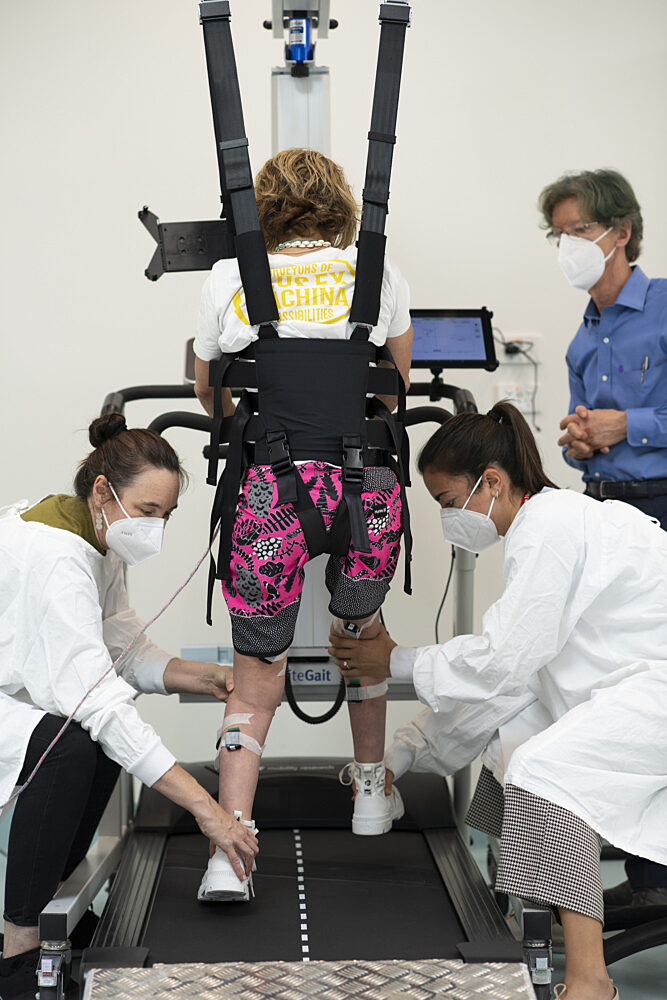Jump to
Spinal cord injury is a devastating condition with immense personal and societal costs. We seek treatment options that act to restore spinal cord function. In the first trial established at the Spinal Cord Injury Research Centre we will determine definitively whether transcutaneous spinal stimulation is a practical therapy to enhance walking in people with chronic paraplegia (T2-T11). We will assess the benefits of spinal stimulation combined with step and walking training. We will use a randomised controlled trial design including a sham intervention. Spinal stimulation will be delivered for up to one hour, three times per week for 12 weeks with a subsequent follow up. 50 participants will be recruited to determine convincingly whether function is improved. The trial will mainly be conducted in Sydney, but with some participation in Chicago, Glasgow and Toledo.
The main outcome is improvement in walking, but we will also assess neurological function, spasticity, quality of life and potential mechanisms underlying any improvements. People interested in joining the eWALK trial or obtaining more information, can download our information sheet here or email the spinal cord injury research team on email hidden; JavaScript is required with contact information to discuss the eWALK trial or other research that is conducted at the SCIRC.
The eWalk trial has now finished recruiting participants, however our eWalk2 trial launched in early September 2024. The eWalk2 trial will recruit people with cervical and thoracic spinal cord injuries and also aims to figure out if spinal stimulation combined with walking training can improve walking ability in people with a chronic spinal cord injury. The eWalk2 trial will run in different sites around Australia. See more detailed information on our eWalk2 trial project page.
Access the Training Modules (password protected)





